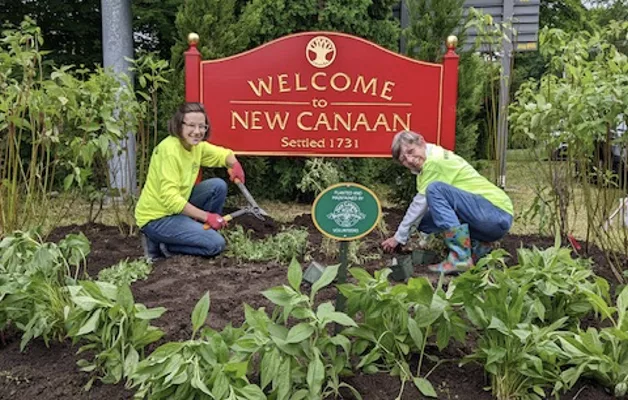By Anne White
New Canaan residents have expressed a growing concern over the safety of young cyclists, particularly with the increasing use of e-bikes. The discussions highlight a collective desire to enhance biking safety education for children, urging parents to take a more active role in teaching road rules, much like they do when their teens learn to drive. While biking is a cherished activity in the town, there’s an need to address safety to prevent potential accidents.
Understanding the Rules of the Road
Chief of Police John DiFederico has emphasized that all cyclists, regardless of age or bike type, must adhere to traffic laws saying that anyone on a bike, has to adhere to normal traffic rules such as not being allowed to ride a bike on a sidewalk, run through a red light, or go the wrong way down a street. These laws are designed to protect both cyclists and pedestrians, ensuring that everyone can share the road safely.
The Role of Parents in Teaching Safe Biking
Parents play a crucial role in educating their children about biking safety, much like they do when teaching them to drive. It’s essential to instill good habits early on, so children understand the importance of following rules and being aware of their surroundings.
Here are some steps parents can take:
Start with the Basics: Before allowing your child to ride independently, ensure they know how to control their bike, use the brakes properly, and maintain balance. Practice in a safe, traffic-free area until they’re comfortable.
Teach Traffic Laws: Explain the rules of the road in simple terms. Children should understand the meaning of traffic signs and signals, how to navigate intersections, and the importance of riding on the right side of the road.
Helmet Safety: Always require your child to wear a properly fitted helmet. Head injuries are a significant risk in biking accidents, and helmets can greatly reduce this risk.
Visibility Matters: Equip bikes with reflectors and lights, especially if riding during dawn or dusk. Bright or reflective clothing can also help make your child more visible to drivers.
Model Good Behavior: Children often mimic adult behavior. When biking together, demonstrate safe practices like signaling turns, stopping at stop signs, and yielding to pedestrians.
Discuss E-Bike Specifics: If your child is using an e-bike, explain the added responsibilities that come with increased speed and weight. E-bikes can accelerate quickly, so it’s vital they understand how to handle them safely.
Understanding Where to Ride
While biking on sidewalks is prohibited in downtown New Canaan to protect pedestrians, it’s allowed in other areas for younger children under supervision. Parents should:
Avoid Busy Streets: Choose quieter neighborhood roads or designated bike paths for family rides.
Use Parks and Trails: Waveny Park and other local areas offer safe environments for children to ride without risks associated with traffic.
Educate About Sidewalk Etiquette: If your child must ride on the sidewalk outside downtown, teach them to be mindful of pedestrians, keep speeds low, and always yield the right of way.
Navigating E-Bike Regulations
E-bikes have specific regulations due to their motorized nature:
Age Appropriateness: Ensure your child is of an appropriate age and maturity level to handle an e-bike.
Legal Requirements: Familiarize yourself with Connecticut state laws regarding e-bike usage, which may include age restrictions and helmet requirements.
Parental Supervision: Initially, supervise your child’s e-bike use to assess their competence and reinforce safe practices.
Creating a Culture of Safety
Chief DiFederico has noted that while most young cyclists in New Canaan are responsible, a small number engaging in unsafe behavior can have serious consequences.
By proactively educating children and setting clear expectations, families can help prevent accidents and ensure that biking remains a positive experience. Open communication about the responsibilities that come with riding—especially on e-bikes—can empower children to make safe choices.
Resources for Families
Local Workshops: Keep an eye out for community events or workshops on bike safety offered by schools, the police department, or local organizations.
School Programs: Advocate for bike safety education within your child’s school to reinforce these lessons among their peers.
A Shared Responsibility
Creating a safe biking environment in New Canaan is a shared responsibility among parents, children, law enforcement, and the community at large. By taking these proactive steps, families can enjoy the many benefits of biking while minimizing risks.


